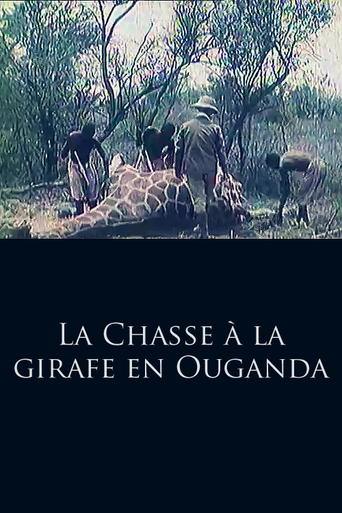

not as good as all the hype
... View MoreHighly Overrated But Still Good
... View MoreA lot of fun.
... View MoreEasily the biggest piece of Right wing non sense propaganda I ever saw.
... View MoreThe film most definitely was, and is, virtually all (135m out of 150 according to the Pathé catalogue, the rest is just tinted) in colour (hand-coloured using the Pathé stencil-process) and like Machin's Chasse à la panthère of the previous year, the colour is exceptionally fine. And, yes, the wretched little Mickey Mouse was there (mercifully very briefly).I have seen this film described as "semi-fictionalised" but there is absolutely no reason to suppose it is; all non-topicality films, fiction or non-fiction, involved a certain degree of mise en scène. The action is gruesome and the slaughtering and skinning are the main focus. This is absolutely typical of hunting films at this period (spoofed very funnily in the notorious Nordisk Lion Hunting/Løvejagten 1907). As I have suggested elsewhere, hunting films seem to have represented what one might call a sort of visual pornography. They were evidently hugely popular (Pathé did not waste colour on any film) and established the reputation of Alfred Machin who would go on to make some very important and interesting films (his Maudite soit la guerre should be compulsory viewing in all schools).Two of Machin's other African films survives - Les Chasseurs d'ivoire of 1912 but this I have only seen in an abbreviated Pathescope version in English retitled Elephant Hunting. A very sad film. More fun is one of the two films he shot amongst the Chillouks of southern Sudan. The first which detailed their working life is sadly not be found but the second, detailing their festive life exists (again in an abbreviated Pathé-Baby version).Machin met with a sort of terrible condign punishment.He brought back several panthers as pets from Africa including Mimir who co-stars in several comedies Machin made for Pathé after his return. One of his panthers eventually mauled him and he never properly recovered his health thereafter.In fact Machin was clearly very fond of animals (his wikipedia photo shows him with a leopard round his neck) and even made a full-length live-action film, featuring animals, Moi aussi, j'accuse, which has an "animal rights" theme, a labour of love that took him years to make. Alas only a couple of excerpts from the film survive.
... View MoreThis recently re-discovered African travelogue movie made by Alfred Machin doesn't make particularly enjoyable viewing. It shows a hunting expedition straight out of a 50s Hollywood action flick: the white men wear crisp brown jackets and hats and mistreat the natives. In the overlong opening shot the only thing of note you see is one of these guys giving an African native what for because he stumbles and falls as they cross a river.The next shot, probably staged for the camera, shows another native getting a hunter's attention and excitedly pointing into the distance. Everybody crouches down while the hunter checks things out through his binoculars and then we see a giraffe falling to the ground.It soon becomes apparent that the purpose of the hunt is to bag the giraffe's hide. Whether this is for commercial reasons or simply reasons of ego and pride isn't clear. Either way, the scenes that follow as we see the natives skinning the giraffe's carcass, leave a bitter taste in the mouth. Although IMDb says the film is black-and-white, the version I saw was in colour - hand-painted probably, although if it is the workmanship is excellent with no bleeding of colours. For some reason they painted the giraffe's meat pink, but then how many people know the colour of giraffe meat?The film was rediscovered by a French guy, a fanatic about early films who died in 2006. He liked to brand his films with a little drawing painted directly onto the film, so right at the start of this film we're treated to a quick glimpse of a skinny Mickey Mouse waving hello before running into a river...
... View More